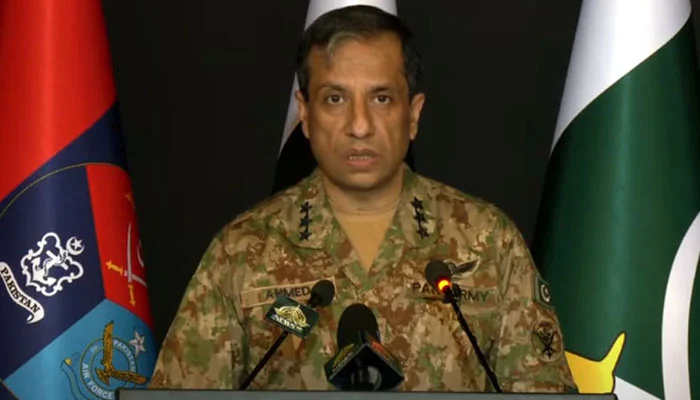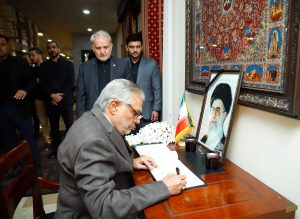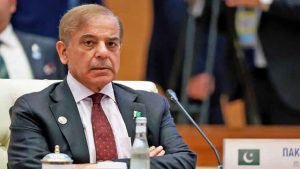Pakistan’s military has firmly rejected recent threats by Indian leadership regarding the potential suspension of water flow to Pakistan, calling such notions “insane thinking” and dangerously misguided.
In an interview with Al Jazeera, Director General of Inter-Services Public Relations (ISPR), Major General Ahmed Sharif Chaudhry, strongly criticised Indian Prime Minister Narendra Modi’s remarks, which implied that India could cut off Pakistan’s water supply following a deadly attack in Indian Illegally Occupied Jammu and Kashmir (IIOJK).
“Only a mad person can think that India can stop Pakistan’s water. You cannot cut off water for 240 million people,” Chaudhry stated.
He reminded that six major rivers flow from Kashmir into Pakistan, making such a move not only practically impossible but also a violation of international agreements and norms. He added that under United Nations resolutions, Kashmir remains a disputed territory involving Pakistan, India, and China — and its future should be decided by the Kashmiri people.
“If Kashmir joins Pakistan, India becomes a lower riparian state. Then it will be our decision how to manage the waters,” he explained.
The ISPR chief described the current tensions not just as a military standoff but as a broader “battle of truth” being fought across diplomatic, strategic, and informational domains.
He accused the Indian government and media of spreading false narratives, particularly after the Phalgham incident, in which India alleged Pakistani involvement without offering any concrete evidence. “We challenged India to present proof to a neutral third party or the international community, but they have provided nothing. Even their Ministry of External Affairs admits the investigation is still ongoing,” he said.
Chaudhry also dismissed Indian media reports accusing Pakistan of involvement in an attack on the Golden Temple, calling it “the biggest lie possible.”
“We honour our Sikh brothers, safeguard holy sites like Kartarpur Sahib, and condemn any violence against religious or civilian targets. Our values and faith do not allow such acts,” he added.
Addressing the military’s preparedness, he praised the coordination between Pakistan’s Army, Navy, and Air Force. He cited the successful use of JF-17 Thunder and J-10C fighter jets, along with the deployment of Fateh-1 and Fateh-2 missile systems, during aerial engagements on May 6–7. “This aerial campaign will be studied in military colleges for decades,” he noted.
While a ceasefire currently holds, Chaudhry cautioned that peace is only possible if India abandons its “war-obsessed mindset” and ends systemic oppression of its minorities, including Muslims, Christians, Sikhs, and Dalits.
“Such oppression naturally provokes reactions — something India refuses to acknowledge,” he said.
He also criticised India’s internal policies, including widespread internet shutdowns and suppression of dissent. “You cannot build trust by jailing journalists or banning thousands of websites. Has Pakistan jailed a single journalist during this conflict? Absolutely not,” he pointed out.
Chaudhry reaffirmed Pakistan’s strong partnership with China, describing it as a decades-long alliance grounded in mutual respect and a shared vision for regional stability.
He acknowledged the efforts of global powers — including the United States, China, Saudi Arabia, Qatar, and the UAE — in recognising the grave risks of escalation between two nuclear-armed nations.
“India is playing with fire,” he warned. “We’ve shown wisdom and restraint to prevent a wider conflict. But lasting peace requires a shift in India’s internal and external approach.”













